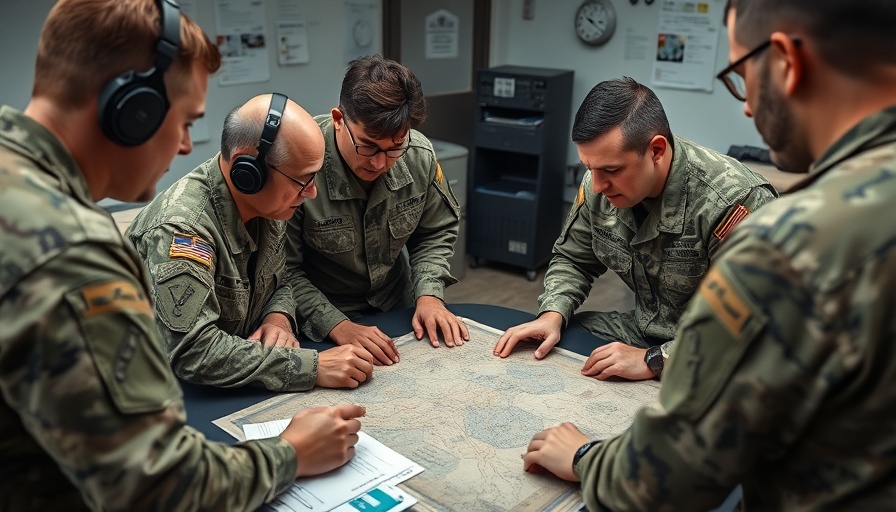
The Transformation of Military Command Structures with AI
The landscape of military strategy is shifting rapidly, and at the heart of this change is artificial intelligence (AI). For centuries, military command structures have largely resembled those used by leaders like Napoleon, focusing on large, centralized operations. However, as the demands of modern warfare evolve, particularly with the emergence of advanced technologies, the time has come for these structures to change drastically.
Why Traditional Command Structures Are Outdated
Today’s military organizations resemble industrial-age architectures, ill-equipped for the fast-paced, information-rich environments of modern battlefields that include air and cyber domains. The cumbersome size of military headquarters leads to a coordination nightmare, complicating decision-making processes. This complexity was starkly illustrated in Ukraine, where static command posts have become targets for modern precision warfare. As a result, military effectiveness suffers.
Reinventing Command with AI
AI technologies present an opportunity to streamline these outdated command structures. AI agents, which are goal-oriented software systems capable of complex decision-making, can automate routine tasks, allowing smaller teams to operate effectively. These agents analyze vast amounts of intelligence quickly, improving the ability to react to battlefield events. The integration of AI in military operations suggests an end to traditional staff roles, enabling personnel to focus on more strategic decisions.
Real-World Applications of AI in Military Strategy
Experiments conducted within military educational platforms have shown that even basic AI can significantly enhance the tempo of military operations. For instance, AI can draft operational plans and generate alternatives that increase efficiency and effectiveness in the fast-paced battlefield environment. This use of technology mirrors the evolving needs of business organizations today, where efficiency and adaptability are paramount.
The Future of Military Leadership
As militaries worldwide explore AI's full potential, leaders will rely on technology not to replace human insight but to enhance it. Ethical considerations will remain crucial, and the human oversight will persist, ensuring that decisions are grounded not only in data but also in political and strategic contexts. The lessons learned in military AI integration can serve as valuable insights for business leaders looking to apply similar technologies in their organizations.
 Add Row
Add Row  Add
Add 










Write A Comment